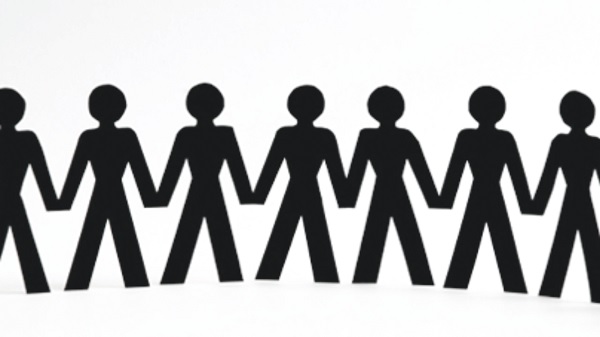
COVID-19: Community factor
This week, I had planned to write on something other than the latest, scary buzzword in town: coronavirus, a.k.a COVID-19.
For about three weeks, our media space has been literally dominated by this virus with all its ramifications.
Advertisement
We all feast on updates from other parts of the world, as well as the happenings in this Republic, from the imported cases to our preparedness to our public education campaign.
And as the figures have mounted, so has our collective apprehension.
In particular, if the figures shoot up, how in God’s name will our public health system cope, both in terms of personnel and equipment when even advanced healthcare systems elsewhere are under severe pressure as their death toll mounts? The thought is terrifying.
Political twists
Of course, grave though this pandemic is, this would not be Ghana if the public discourse on COVID-19 did not include a partisan twist in a war of words between the two main parties, and social media is almost fun (in a macabre kind of way) to observe as sabres rattle and then clash.
Perhaps, as far as politics and politicians are concerned, the silver lining to the rather dark cloud hanging over us is that with our borders sealed and aircraft grounded all over the world, our rich and privileged politicians from either side are equally grounded, and we all have to make do with the health system we have created for ourselves as a country over the years.
No fancy business class trips to South Africa, Dubai or the US to seek medical care. For many, this is a good thing to gloat over.
Mankind’s achievements
The more I thought of COVD-19, the more I realised that really, everything else paled into insignificance and I could not even think of another subject to write on, even though I desperately needed a break away from the doom and gloom. Somehow, COVID-19 kept beckoning and I had to yield.
In the 20th and 21st centuries, science has made so many significant gains in every aspect of our lives through the power of technology.
In medicine, pharmaceuticals, transport, international travel, telecommunications and many more, our lives today are almost unrecognisable from only two generations ago. We have conquered the depths of the oceans and the summits and extreme ends of the earth.
We have breached the final frontier in space travel and we have broken the sound barrier.
In our homes, devices such as microwave ovens, blenders, toasters and washing machines have made our lives much simpler.
Today, with huge advances in medicine, it is unimaginable that the Spanish Flu pandemic of 1918-19, which killed 50 million people worldwide, would have such a field day again.
Perhaps, mankind has had every right to feel almost invincible as technology grows in leaps and bounds and the world becomes more tightly knit as one village, where national borders are becoming increasingly meaningless.

When all is said and done, the most important thing is having each other
Human casualties
Interestingly, the leaps and bounds of society have had their own casualties, particularly in western societies, with
significant levels of atomisation, loneliness, depression and a broken down family system as everyone is busy chasing the El Dorado of their lives in a mostly liberal system where religiosity and spirituality are almost offensive to many.
I was shocked when on my first visit to the UK in 1988, I saw an old lady shuffling slowly around in a supermarket all by herself as she wheeled a trolley along slowly.
She cut such a sorry figure. Over the years, I would learn that this was a common sight and that many elderly people lived all by themselves and at worst were shunted off to a care home if they became frail or could no longer lead independent lives.
I also learned that neighbourly friendliness and a sense of community was not something one was to expect in the west, especially in large cities. Pleasantries with my next door neighbour only took place if we bumped into each other in the streets, which was not very often.
Power of one ‘mere’ virus
It would appear that for all its grandiose pose and its seeming invincibility, the complex global system has been brought down to its knees by one ‘mere’ virus, aided in its spread by the very technology that has powered international travel and brought the world together.
Literally in the twinkle of an eye, factories have shut down, travel plans have been cancelled at the last minute, meetings have been cancelled and in the west, toilet paper has become the most prized possession as panic buying set in.
Vibrant promenades, restaurants, transport systems, open public spaces, hotels, among others have become a pale shadow of themselves, especially in Europe and North America as the authorities battle to contain the spread and people barricade themselves indoors.
Accra is slowly hemorrhaging, with traffic getting lighter and lighter and hotel lobbies and restaurants deserted. I do pray we do not go into lockdown because many from very low income brackets will simply starve as they are not able to stockpile food.
In any case, I recall the curfew days of the Rawlings revolution and would not wish to see anything similar ever again.
Importance of community
In all of this, it appears that societies are rallying around and focusing on what really matters, which is the sense of community.
All around, there are stories of trapped neighbours in Europe singing to one another through their windows to keep their spirits up.
I would not be surprised if many had not even noticed their neighbour before COVID-19. Suddenly, people are checking in on their elderly neighbours to see if they are OK and to run errands for them if need be.
Retired health personnel are stepping up to offer their services. The list of stories of kindness and communal spirit continues to grow.
I think that at the end of it all, the lesson is that all the wonderful technology and the wonderful things that modern living gives us are meaningless if we do not have one another.
Family, human kindness and solidarity can never be traded for anything, however alluring. When the chips are down and as with the case of COVID-19, the world has effectively come to a standstill, we still need one another to confront our fears, to offer hope and comfort to one another and to rally around in our determination to get our lives back on track again as science and medicine race to bring this nightmare to an end.
Generally, in Ghana, we have a much stronger community system even if our extended family system is slowly but surely being replaced by the nuclear family.
When this is over (and it will be), may we continue to chase our individual dreams and aspirations. But in all of this, may we remember that our greatest assets lie right under our noses - our friends, our family and our loved ones. Let’s hold on to them tightly. They are all we have, really.
Rodney Nkrumah-Boateng,
E-mail: [email protected]



